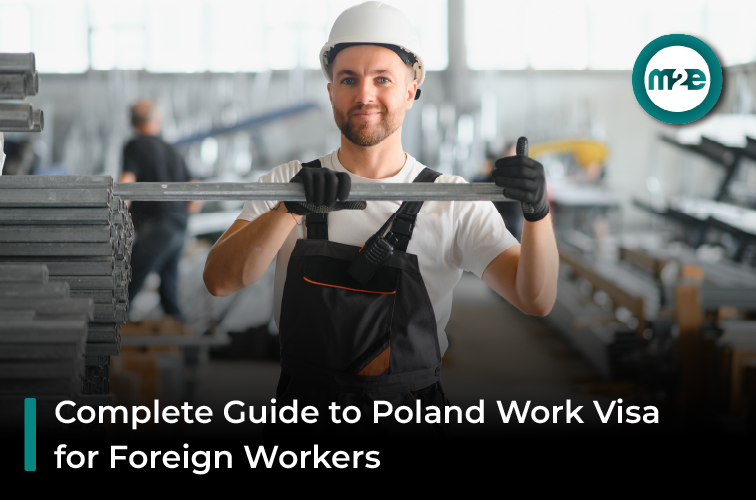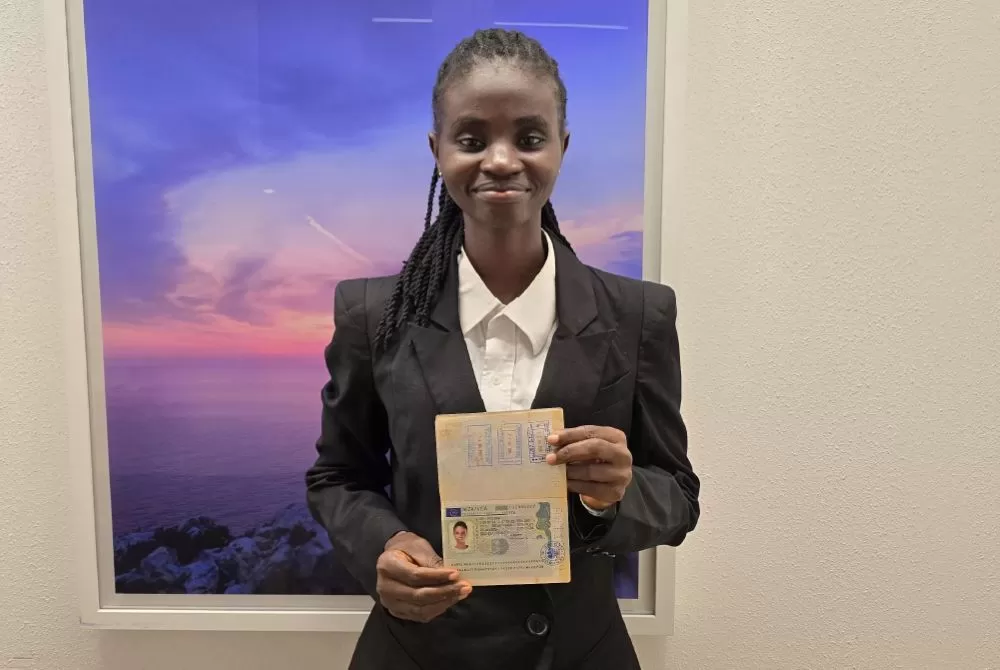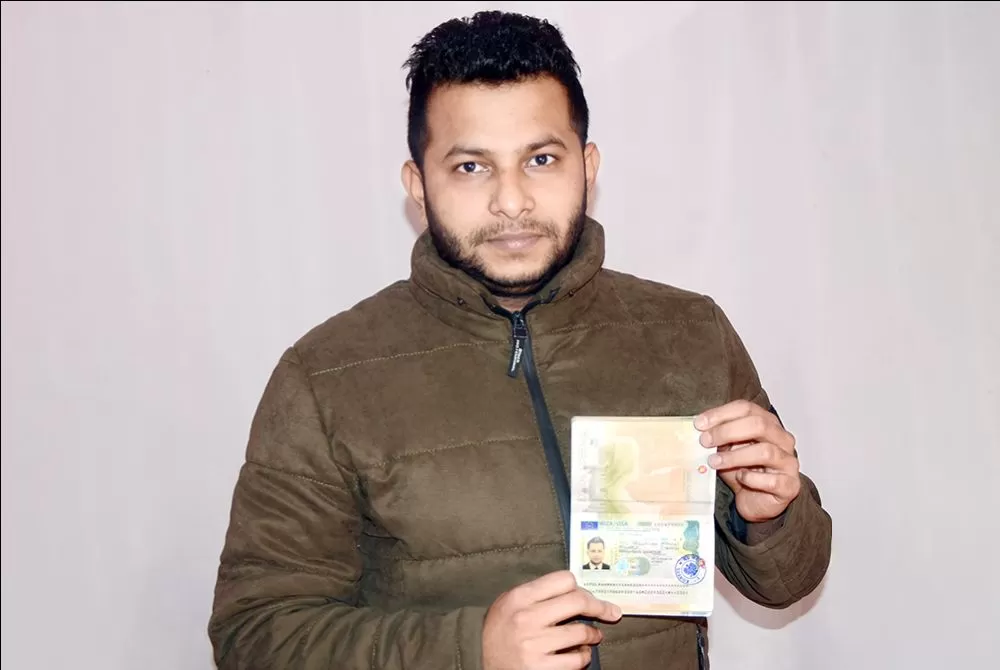
Complete Guide to Poland Work Visa for Foreign Workers
Poland continues to attract thousands of foreign workers every year thanks to its stable economy, growing industries, and demand for skilled labor. Whether you’re planning to work in construction, logistics, healthcare, IT, or seasonal jobs, understanding the Poland work visa process is the first step toward legal employment.
This guide breaks down all the essentials — from visa types and requirements to job search tips and family reunification options.
Do You Need a Visa to Work in Poland?
If you're a non-EU citizen, then yes — you must obtain both a work permit and a national visa (D-type) to legally work in Poland. Citizens from EU/EEA/Switzerland do not need a visa but must register their stay if staying longer than 90 days.
Types of Work Visas Available in Poland
Poland offers several types of work permits and visas, depending on the nature and duration of employment:
- Type A – For foreigners employed by a Polish employer
- Type B – For board members residing in Poland over 6 months
- Type C to E – For intra-company transfers and specific service providers
- Seasonal Work Permit – For short-term, seasonal jobs in agriculture, tourism, etc.
- EU Blue Card – For highly skilled professionals with higher salaries
Poland Work Visa: Key Requirements to Apply
To apply for a Poland work visa, you’ll typically need:
- A valid job offer or contract from a Polish employer
- Work permit issued by the voivode (regional governor)
- Completed visa application form
- Valid passport
- Proof of accommodation in Poland
- Health insurance
- Visa processing fee payment
The employer usually applies for the work permit on your behalf.
How to Apply for a Polish Work Visa
- Find a job in Poland (official portals listed below)
- Your employer applies for a work permit
- Once approved, you receive a decision letter
- Apply for a national visa (D-type) at the Polish embassy/consulate
- Attend the visa interview
- Receive your visa and travel to Poland
Poland Work Visa Processing Time Guide
Visa processing can take 8 to 12 weeks, depending on:
- Your nationality
- The type of work permit
- Embassy workload
- Employer documentation readiness
It’s advised to apply well in advance, especially during peak hiring seasons.
How Long Can You Stay in Poland on a Work Visa?
Most work visas allow you to stay and work for up to 1 year, with options to extend. In the case of long-term employment contracts or Blue Card holders, the validity can be up to 3 years.
Validity of a Polish Work Permit Explained
Work permits are usually valid for:
- Up to 1 year for standard contracts
- Up to 3 years for skilled professionals or managerial roles
- Up to 9 months for seasonal workers
The duration depends on your contract and job type.
Steps to Extend Your Poland Work Visa
To extend your visa or permit:
- Apply for renewal before expiry (ideally 30–45 days in advance)
- Submit updated employment documents
- Show proof of continued legal stay and residence
- Await the decision from the Voivodeship Office
If approved, you can continue working without leaving the country.
Can You Change Jobs on a Polish Work Visa?
Changing employers on a standard Polish work permit is not allowed without applying for a new permit. However, EU Blue Card holders can change jobs after 2 years with simplified procedures.
Always inform the Voivode Office before switching jobs to avoid legal issues.
Bringing Family to Poland on a Work Visa
You can apply for a temporary residence permit for your spouse and children. They’ll need to:
- Show proof of family ties (marriage/birth certificates)
- Provide financial support evidence
- Secure accommodation in Poland
Children may attend public schools, and spouses can apply for their own work authorization.
Guide to the Poland Seasonal Work Visa
The Seasonal Work Permit is valid for up to 9 months in sectors like:
- Agriculture
- Gardening
- Food processing
- Hospitality
This is ideal for temporary laborers or first-time workers looking to enter Poland’s workforce. The employer must first register your application at the County Labour Office (PUP).
How to Find a Job in Poland (Government Job Portal)
Before applying for a visa, you need a legal job offer. Start with these trusted sources:
- EURES Poland (European Job Mobility Portal)
https://eures.ec.europa.eu- Lists job offers from verified employers in Poland
- Central Job Portal (Polish Government Labour Office)
https://oferty.praca.gov.pl- Official portal of the Ministry of Family and Social Policy
- Updated job listings for foreign workers, with language filters
Use keywords like “English-speaking jobs”, “visa sponsorship”, or specific sectors (e.g., “logistics”, “construction”) to find suitable offers.
Final Thoughts
Getting a Poland work visa is a structured but achievable process. With the right documents, a legal job offer, and proper guidance, you can legally live and work in Poland. Whether you're seeking long-term employment or a seasonal opportunity, Poland’s growing labor market has space for qualified foreign talent.
FAQs About Poland Work Visa for Foreigners
Who needs a work visa to work in Poland?
Non-EU/EEA citizens must have both a work permit and a national (D-type) visa to work legally in Poland.
Can I apply for a Poland work visa without a job offer?
No. A valid job offer or signed employment contract from a Polish employer is required before you apply.
What is a Type A work permit in Poland?
This is the most common permit, issued to foreign workers directly employed by a Polish company.
How long does it take to get a Poland work visa?
It typically takes 4 to 8 weeks, depending on your country of application and embassy workload.
Is IELTS required for a Poland work visa?
No formal English test like IELTS is required, but basic language skills may be assessed by employers.
Can my family join me in Poland on a work visa?
Yes. You can apply for family reunification permits to bring your spouse and children.
Can I change employers after arriving in Poland?
Only with a new work permit issued by the new employer and approved by Polish authorities.
Is it possible to convert a tourist visa into a work visa in Poland?
No. You must apply for a work visa from your home country or legal country of residence.
What is the Poland seasonal work visa?
This short-term visa allows you to work for up to 9 months in agriculture, hospitality, or food processing.
How much does a Poland work visa cost?
The embassy fee is around €80. Other service or document fees may apply depending on your case.
Can I apply for permanent residency in Poland?
Yes. After five years of continuous legal stay, you can apply for long-term EU resident status.
What is the validity of a Polish work permit?
Work permits are typically valid for up to 1 year but can be extended based on your employment.
Is health insurance mandatory for a work visa?
Yes. You must have valid health insurance at the time of application and throughout your stay.
Where can I find verified jobs for foreigners in Poland?
Use trusted platforms like oferty.praca.gov.pl and EURES.
Do I need to speak Polish to get a job?
Not necessarily. Many employers accept basic English, especially in logistics, construction, and IT.
What documents are required for a Poland work visa?
You’ll need your passport, job contract, work permit, accommodation proof, insurance, and visa application.
Can students work full-time in Poland?
International students can work part-time. For full-time work, a separate work permit is required.
What sectors hire foreign workers in Poland?
Key sectors include construction, logistics, agriculture, hospitality, manufacturing, and healthcare.
Is it safe to move to Poland for work?
Yes. Poland is part of the EU with a strong legal framework protecting foreign workers’ rights.
Can I work in other EU countries with a Poland work visa?
No. A Polish work visa is only valid for Poland. Other EU countries require separate work permits.
Need step-by-step guidance for European immigration?
Connect with Moving2Europe.eu — Europe’s No. 1 overseas immigration consultancy — for expert, end-to-end support on your journey to work and live in Europe.












